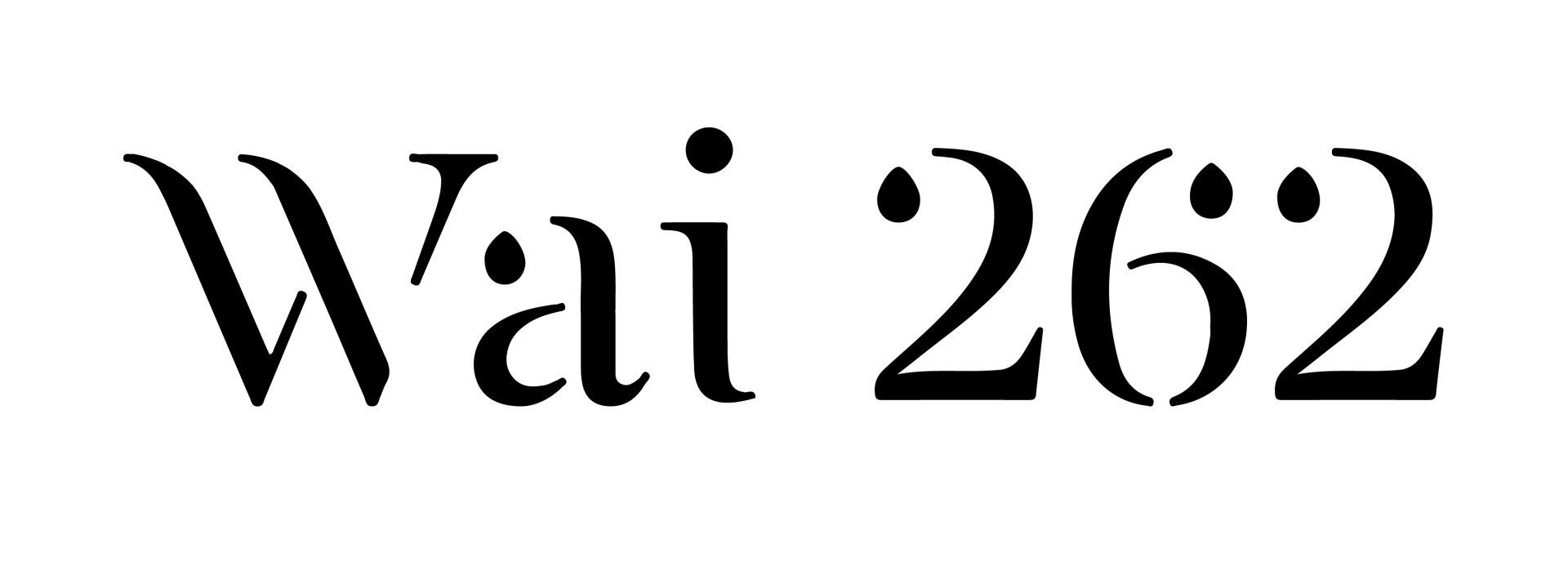Kahu Aronui
Kahu Aronui has been established to provide expert technical advice to the Wai 262 Taumata Whakapūmau to provide a matrix of proposed solutions to meet the needs of the kaupapa. The proposed solutions will embody the principle that Māori have the full and exclusive decision-making authority to Taonga Māori, as guaranteed by Te Tiriti o Waitangi.
Māori-designed solution
Whānau, hapū and iwi kaitiaki must be provided the opportunity to engage with, and wānanga on, those proposed solutions, to reach a Māori-designed solution that sits within the Māori worldview.The immediate workstreams include:
1.
Develop a Taonga Framework that will inform Sui Generis Legislation for the protection of Taonga Māori, including traditional cultural expressions (TCEs), Genetic and Biological properties, and associated mātauranga, to include:
- The prevention of misuse and misappropriation of taonga Māori;
- The development of ethics and guidelines to facilitate and encourage the appropriate use of, and benefit from, taonga Māori;
- A cost effective, properly resourced, and workable monitoring, audit, enforcement and sanction regime.
2.
Provide expert advice and content for the Kanohi Ora engagement programme with Māori kaitiaki. Conduct research including survey of Māori creatives and produce a report to inform and support a sui generis framework and legislation.
3.
Draft legislation to give effect to the Taonga Framework for the protection of taonga Māori.
Maui Solomon
Maui is of Moriori, Kai Tahu, and Pakeha - English, Irish, French, and German descent. Maui is well-versed in the Wai 262 claim as legal counsel for three of the six claimant whānau and Iwi represented. Maui holds a number of roles across Iwi, Māori commercial interests and Government. He is the Chair of Hokotehi Moriori Trust and was recently appointed to the Ministerial advisory board established to help ensure existing Treaty settlements are upheld under the new resource management system. He is also a member of Ngā Toki Whakarururanga. He is a barrister with 30 years legal experience and is known as an Indigenous Rights activist, mediator and negotiator in New Zealand, the Pacific and internationally. He specialises in:
- Land and fishing claims
- Cultural and intellectual property and environmental law
Jacinta Ruru
Jacinta is of Raukawa, Ngāti Ranginui me Ngāti Maniapoto and Pākehā descent. Jacinta is a Professor of Law at the University of Otago. Her interests in law are:
- Tikanga Māori and Indigenous law
- Indigenous Peoples legal rights, interests and responsibilities to care for,own, govern and manage lands (including national parks) and waterbodies
- Māori land law including Te Ture Whenua Māori Act 1993
- Te Tiriti o Waitangi / Treaty of Waitangi and United Nations Declaration on the Rights of Indigenous Peoples; and
- Decolonisation of New Zealand’s research sector and legal education.
Lynell Huria
Lynnell is recognised as a leading voice on indigenous intellectual property rights, Māori intellectual property and trade mark protection. She was the first Māori patent attorney. Over the last 30 years, Lynell has worked for a large intellectual property specialist firm, advising a wide variety of clients including whānau, hapū, and iwi, sole traders, companies, and multinational corporations. Lynnell is also involved in work for
Te Taumata and
Manuka Charitable Trust.
Tina Porou
Tina is of Ngāti Porou, Ngāti Tūwharetoa, Ngāti Kahungunu and Ngāi Tāmanuhiri. She has been an environmental planner for the last 20 years working with local authorities, iwi and hapū, central government and the private sector on a range of natural resource matters. Tina leads Pou Taiao for the
National Iwi Chairs Forum and is lead for Next Gen Kaitiaki Hui. Her expertise is in connecting mātauranga Māori with technical skills in the planning field to build win-win outcomes for the environment and sustainable businesses.Tina was the Head of Sustainability and Environment at Contact Energy before deciding to follow her calling to establish her own consultancy
Poipoia. Tina was the recipient of a Sir Peter Blake Leadership Award in 2015 for her work with the environment and was honoured as a member of the NZ Order of Merit in 2016.
Aroha Mead
Aroha Te Pareake Mead (Ngāti Awa, Ngāti Porou) is a political scientist who works across disciplines on indigenous rights and sustainable development issues. Aroha has held positions in public policy, academia, international organisations and the not-for-profit sector. She currently works as an independent researcher and advisor. Recent work with Wakatu and Te Ohu Raraunga Māori Data Governance Group has involved assessing indigenous methods of protecting Intellectual Property. Particular areas of interest and expertise for Aroha are:
- Māori/Indigenous Cultural and Intellectual Property issues
- Biocultural heritage and biocultural conservation
- Māori representation and engagement in International Processes
- Indigenous perspectives on Biotechnology, Bioethics,
- Synthetic Biology, Gene-Editing; and Māori/Indigenous advancement and sustainable development.
Leo Watson
(Kaitohutohu to Wai 262 Taumata Whakapūmau) Leo is a legal practitioner with over 25 years’ experience in Indigenous Law including Treaty of Waitangi claims, Māori land, compulsory acquisitions and public works, administrative law, fisheries, traditional knowledge and Intellectual property, employment and environmental law. Leo has been instrumental in connecting and supporting Wai 262 claimant kaupapa.


